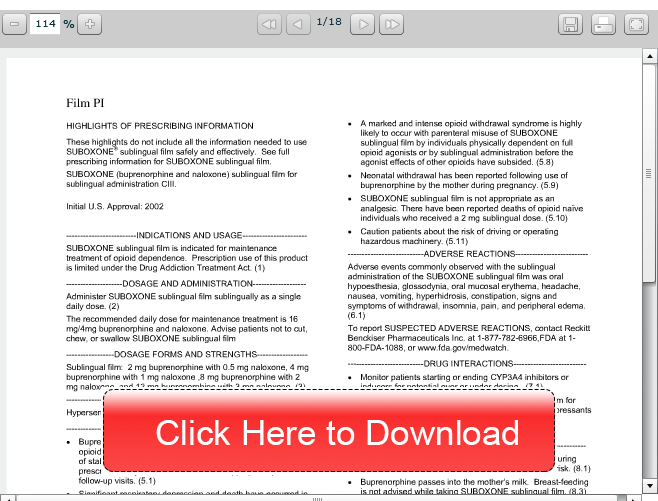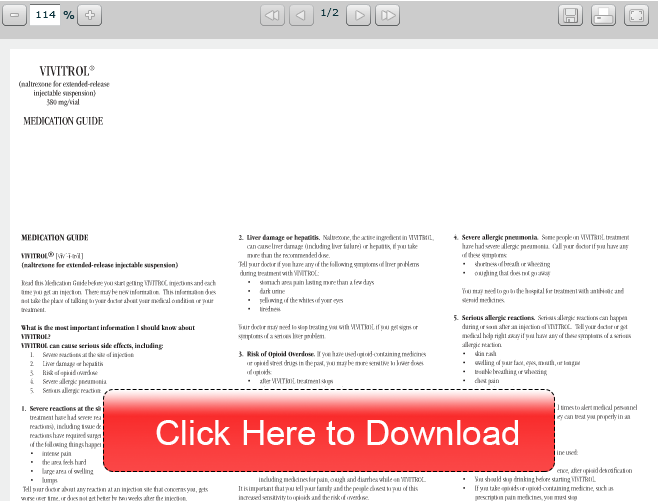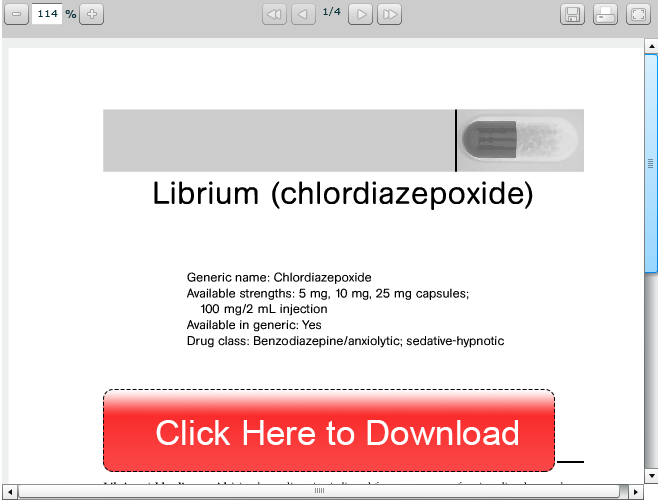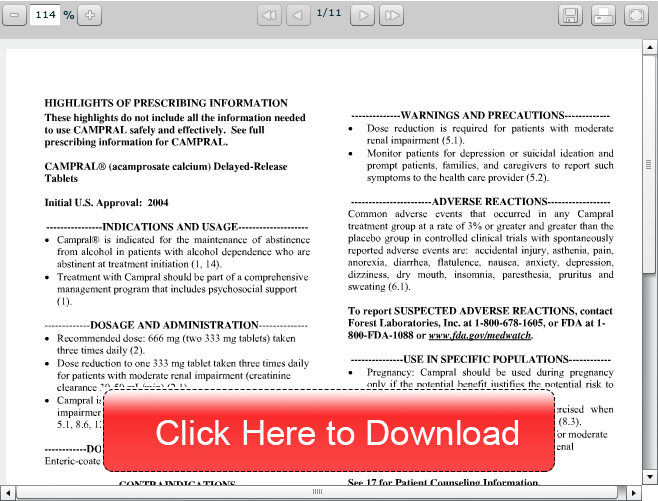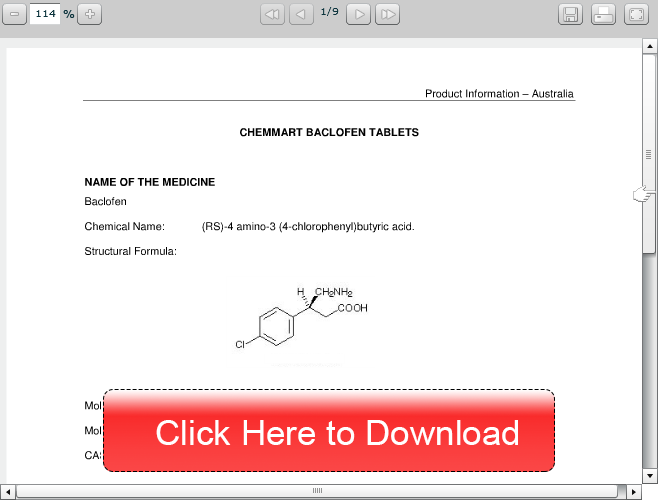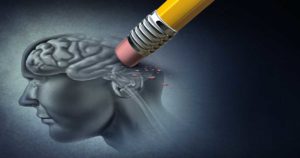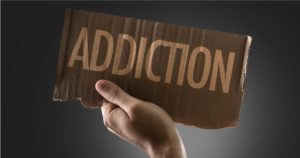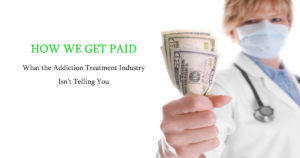There are various medications that are used in our alcohol and drug rehab program. Some of these include Suboxone, Naltrexone, Vivitrol®, Librium, and Antabuse*. What they all have in common is the fact that each is scientifically proven effective in the treatment process. Our rehab centers medication assisted treatment plan:
- Controls cravings caused by chemical dependency
- Blocks the ability of the client to gain euphoric effects from their drug(s) of choice
- Controls withdrawal symptoms associated with chemical detoxification
- Promotes the bodies return to its normal functions
By no means do we suggest these medications to be a cure for the disease of alcohol and drug addiction but they are a powerful tool to be used in conjunction with other treatment modalities for an effective and comprehensive program at our St. Louis, Kansas City, or Virtual rehab center. We include these services in all of our rehab programs. The detoxification and medical stabilization rehab program level is designed for individuals receiving therapies outside of our rehab facility. This provides persons working a 12-step program the means to become more comprehensive in their addiction treatment plan.
This list of medications is for information purposes only. Other brands and generic versions of medications are also available. Medical research continues to explore alternative solutions and this list is not an exhaustive list of medication options.
Suboxone ®
 Suboxone is a partial agonist for the dopamine receptors; it activates the receptor enough to control withdrawal but without the euphoria experienced from opiate use. Naloxone is an antagonist to dopamine in suboxone that renders this drug less abusable. Suboxone is a very effective means to detox an individual with opiate addiction and transition that person to Naltrexone for continuation of addiction treatment. Suboxone is not meant to be stand-alone treatment. Individuals taking Suboxone should also seek addiction treatment services for effective care. Our rehab program utilizes Suboxone as a means to facilitate a comfortable detox from opiates and opioids or for stabilization over a longer period of time.
Suboxone is a partial agonist for the dopamine receptors; it activates the receptor enough to control withdrawal but without the euphoria experienced from opiate use. Naloxone is an antagonist to dopamine in suboxone that renders this drug less abusable. Suboxone is a very effective means to detox an individual with opiate addiction and transition that person to Naltrexone for continuation of addiction treatment. Suboxone is not meant to be stand-alone treatment. Individuals taking Suboxone should also seek addiction treatment services for effective care. Our rehab program utilizes Suboxone as a means to facilitate a comfortable detox from opiates and opioids or for stabilization over a longer period of time.
Vivitrol ®
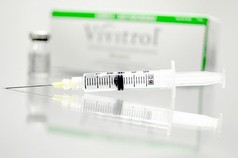 The Naltrexone extended-release injection (Vivitrol®) is used along with counseling and social support to help people who have stopped drinking large amounts of alcohol to avoid drinking again. Naltrexone injection is also used along with counseling and social support to help people who have stopped abusing opiate and opioid medications or street drugs to avoid abusing the medications or street drugs again. Naltrexone acts as an antagonist to the dopamine receptors minimizing cravings and blocking euphoria. In injectable form (known as Vivitrol®) an individual only needs the drug administered monthly. Naltrexone is often confused as being similar to methadone or suboxone, when in fact, it is a non-addictive substance; there are no withdrawal symptoms from terminating usage.
The Naltrexone extended-release injection (Vivitrol®) is used along with counseling and social support to help people who have stopped drinking large amounts of alcohol to avoid drinking again. Naltrexone injection is also used along with counseling and social support to help people who have stopped abusing opiate and opioid medications or street drugs to avoid abusing the medications or street drugs again. Naltrexone acts as an antagonist to the dopamine receptors minimizing cravings and blocking euphoria. In injectable form (known as Vivitrol®) an individual only needs the drug administered monthly. Naltrexone is often confused as being similar to methadone or suboxone, when in fact, it is a non-addictive substance; there are no withdrawal symptoms from terminating usage.
Librium
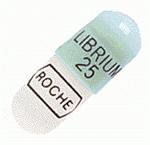 Librium (chlordiazepoxide hydrochloride) comes in capsule form and is taken orally according to our prescribing doctor’s instructions. The medication works by boosting your brain’s natural calming agent GABA (gamma-aminobutyric acid). GABA enables certain signals in the brain to either slow or stop, creating a tranquilizing, sedating effect. It’s classified as a benzodiazepine and helps to reduce anxiety, halt seizures, relax muscles and create a sleepy or drowsy feeling. Because of these effects, Librium can be helpful in controlling some of the symptoms associated with withdrawal from alcohol and drugs.
Librium (chlordiazepoxide hydrochloride) comes in capsule form and is taken orally according to our prescribing doctor’s instructions. The medication works by boosting your brain’s natural calming agent GABA (gamma-aminobutyric acid). GABA enables certain signals in the brain to either slow or stop, creating a tranquilizing, sedating effect. It’s classified as a benzodiazepine and helps to reduce anxiety, halt seizures, relax muscles and create a sleepy or drowsy feeling. Because of these effects, Librium can be helpful in controlling some of the symptoms associated with withdrawal from alcohol and drugs.
Campral
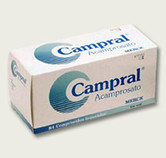 Campral (Acamprosate) is an alcohol anti-addiction medicine used to reduce alcohol cravings in alcohol addicts who have completed medical detox or alcohol detox. It has shown to reduce cravings by restoring the balance in certain neurotransmitter pathways that have been altered due to alcohol addiction. Campral helps to control the systems in the brain responsible for relaxation and energy in order to keep individuals in balance.
Campral (Acamprosate) is an alcohol anti-addiction medicine used to reduce alcohol cravings in alcohol addicts who have completed medical detox or alcohol detox. It has shown to reduce cravings by restoring the balance in certain neurotransmitter pathways that have been altered due to alcohol addiction. Campral helps to control the systems in the brain responsible for relaxation and energy in order to keep individuals in balance.
Baclefen
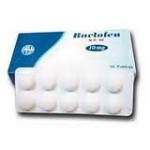
Research has demonstrated initial clinical efficacy of baclofen over placebo in reducing cocaine use during cocaine addiction when delivered concurrent with thrice-weekly drug abuse counseling sessions. The effects of baclofen were particularly apparent for those participants with chronic levels of cocaine addiction at baseline and provide support for a full-scale efficacy trial for baclofen, especially among this subgroup of patients. This medication is typically used with clients who have cocaine addiction.
*Medications, detox protocols, and treatment are determined by the attending physician and may vary for each case. The information provided is general in scope and meant to be informative rather than diagnostic.
J Clin Psychiatry. 2003 December; 64(12): 1440–1448. Randomized placebo controlled trial of baclofen for cocaine dependence: preliminary effects for individuals with chronic patterns of cocaine use. Steven Shoptaw, XiaoweiYang, Erin J. Rotheram-Fuller, Ya-Ching M. Hsieh, Prudencia C. Kintaudi, V. C.Charuvastra, Walter Ling








